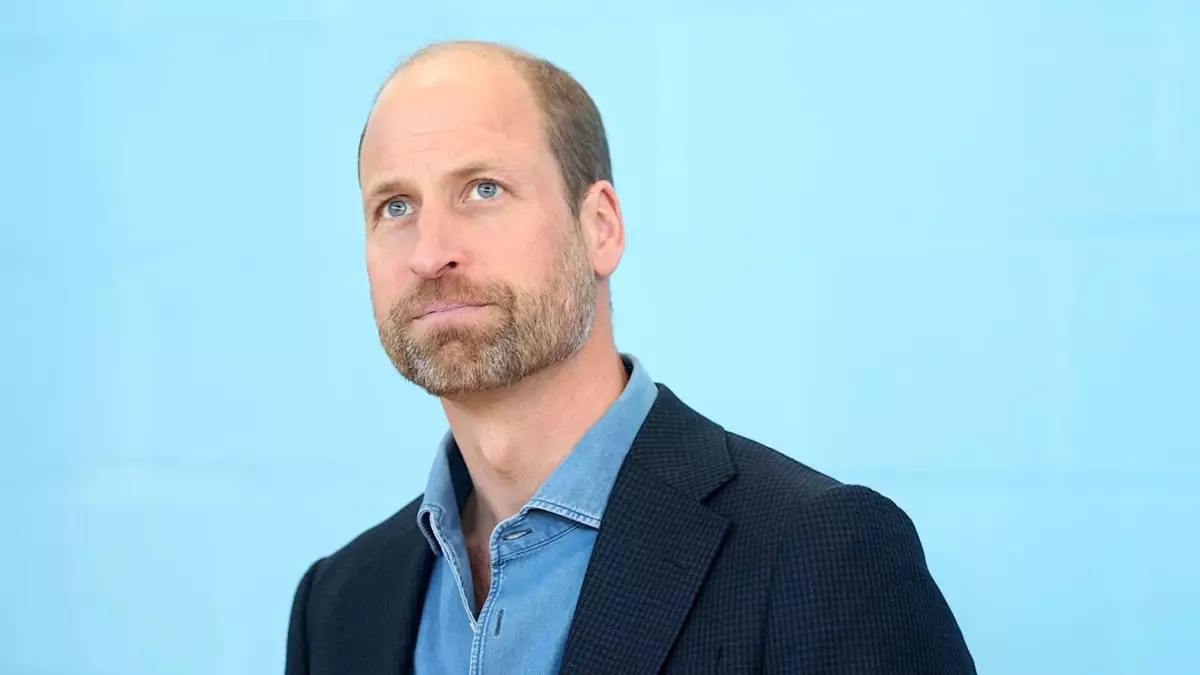When Prince William stepped into the role of the Duke of Cornwall in 2022, he inherited more than just a title; he took on the stewardship of a historically significant estate sprawling across 128,000 acres, steeped in royal legacy and economic power. The Duchy of Cornwall, with its extensive land holdings and diversified income streams, has long been a financial backbone for the monarchy. Yet, William’s ambitious vision marks a stark departure from traditional royal management. Aiming to shift the perception from mere profit generation to social value creation, he intends to craft a legacy that prioritizes community welfare and environmental sustainability—all while navigating the complexities of modern society.
Balancing Legacy With Modern Accountability
William’s approach hinges not solely on resuming the existing operations but on instilling a fresh perspective concerning the Duchy’s role in the 21st century. During a recent visit to Corston Fields Farm, a dialogue with long-standing tenants revealed both humor and seriousness regarding the estate’s future. Jokingly reflecting on the idea of rent-free living, William’s comments hinted at his underlying ambition to liberate tenants from traditional financial burdens. This candidness signifies more than jest; it unveils an approachable leader who is more than willing to re-evaluate longstanding practices to foster a nurturing environment.
Such openness is vital for effective leadership. William invites competing ideas and ensures his staff feel empowered to voice dissent, aiming to dissolve any traditional hierarchies that hinder innovation. His proactive efforts cultivate an atmosphere where meaningful discussions can pave the way for modern, community-oriented policies—visions that resonate deeply in today’s world.
From Farming to Social Impact: A Broader Vision
Central to Prince William’s new approach is the undeniable ethos of social responsibility. Transitioning from a focus exclusively tied to traditional agriculture, he emphasizes the need for a broader societal impact. With initiatives aimed at combatting homelessness, improving rural mental health, and reinforcing community ties, William strives to create a holistic model of land management that recognizes the interconnectedness of social justice and agrarian interests.
The new motto for the estate—”Positive impact for people, places, and planet”—captures this ambitious philosophy. From green initiatives like reforestation to housing projects for the homeless, the Prince’s plans breathe life into a vision that could inspire similar entities to rethink their community engagement strategies. This approach could very well redefine land stewardship, showcasing to both the British public and global audiences that compassion can accompany wealth without compromising it.
Addressing Contemporary Challenges
William’s proactive engagement with rural communities has facilitated conversations about pressing challenges faced by farmers today, from the pressures of supplying commercial markets to the isolation often felt in these remote areas. Appointing a “family farming ambassador” to champion tenant needs illustrates his commitment to offering practical support beyond the financial realm. This newfound emphasis on mental wellness and social cohesion in agricultural communities is particularly striking and well-timed, as many farmers navigate unprecedented market volatility and personal hardships.
Moreover, community-building events like “pie and pint” evenings manifest the Duchy’s commitment to nurturing relationships within these far-flung rural networks. Such gatherings not only enhance social capital but encourage collaboration among stakeholders, illustrating how communal interaction can lead to innovative solutions for common problems.
A Vision for a Sustainable Future
Despite the prolific scope of the Duchy, the extensive work undertaken by Prince William often unfolds quietly away from the public eye. His support for initiatives like We Are Farming Minds highlights a nuanced understanding of mental health within farming communities—issues not often spotlighted but deeply significant. The Prince’s vision embodies a delicate balance between modernizing estate administration while upholding values that have historically defined the Duchy of Cornwall.
In this transformative endeavor, Prince William seeks to reimagine not just the Duchy’s role but also the potential of large agricultural estates to serve as models for sustainable and supportive community engagement. His assertion that “there’s so much good we can do in the rural world” echoes a clarion call for innovation rooted in tradition, inviting a future where the land serves as a sanctuary rather than merely a resource. In his hands, the Duchy of Cornwall is poised not just to grow but to thrive, inspiring others in its wake to prioritize community well-being alongside economic prosperity.

Leave a Reply